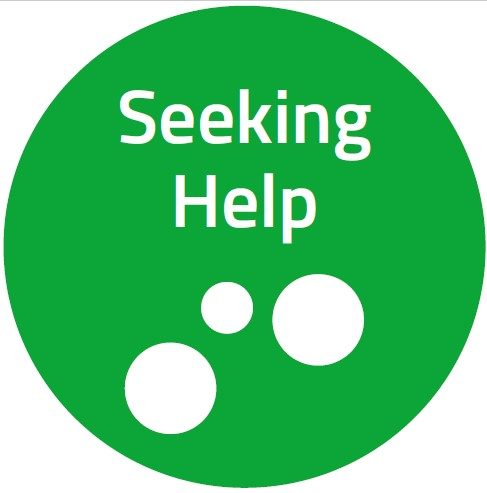
Everyone is doing their best to be helpful to others during this crisis, but this can mean that we are not seeking help for ourselves. Being a ‘helper’ can be exhausting, particularly as many of us are now helping people even more than usual-, helping children with their learning, helping the family to maintain a healthy lifestyle, helping to support older relatives, helping in the community and all from a position of feeling isolated ourselves and away from our usual supports.
Research has shown that being able to ask for help and receive it is good for our resilience and positive mental health but, even in normal circumstances we can find it hard to ask for help.
Why is this the case?
We may feel that other people are too busy to help or that we have always just ‘got on with it’. We may see asking for help as a sign of weakness or know that it will create a feeling of vulnerability.
So why is it important to ask for help when we need it?
Asking for help should be a sign that we are showing self-awareness and a willingness to learn and grow. It gives us the opportunity to move forward rather than letting the situation get worse, along with our ability to deal with it on our own. Perhaps by refusing to ask for help we are not giving someone the chance to be helpful (it has a positive effect on the person giving the help too as it can make them feel good to be needed). The process of asking for help also means that you are connecting with others and should help you prepare for the next challenge.
Seeking help is much easier in a culture that is conducive to collaboration and one in which everyone, including leaders, models help-seeking behaviours:
‘Needing help – asking for help – is an essential part of being a leader. While I’ve always known this, I’ve also always secretly felt that it’s a leader’s job to help others, not to need help.
But that’s a myth. The reality is that leaders who don’t need help have no one to lead. People feel good when they help. They are inspired when they are needed. They don’t think less of the people they help; they feel more connected.
I am not superhuman. Nor are you. And that’s not only OK, it’s better’. (Peter Bergman CEO – Harvard Business Review)
So, it can be tough to ask for help. We know that everyone needs help so let’s look at how best can we ask for help? The word help can mean a variety of different things so it can be easier to try and break the problem down.
- Make a list of what you need help with.
- I need help to walk the dog.
- I need help to finish this project.
- I need help with my child’s homework.
2. Write down a list of the people who could help you and match each one to the things you need help with.
- Your children could walk the dog.
- A neighbour might pick up some shopping.
- A friend who is a teacher might help with the Maths.
3. Always remember that it is a good thing to ask for help but choose a good time to ask. You could say ‘Is this a good time to talk’.
4. Try to be specific about what you need eg. Instead of saying ‘I’m really struggling with G’s homework. Rather, say ‘I’m finding the fraction section hard to understand, can you explain with a few examples please’.
5. Try not to be over-apologetic or negative.
6. Keep trying if the help you get isn’t what you needed. Perhaps try someone else.
7. Try to build a reputation as a helpful person – Helping each other is what happens in a supportive community – big or small.
It is very important that you acknowledge the help you have received right away if possible. Be specific – what difference did the help make to you.
What if you think someone else needs help?
Perhaps you feel that someone you work with is struggling. There are some things you can do to support, such as offer them the chance to talk. If they do want to talk, listen carefully and let them know they have your full attention. Use non-verbal communication like nodding to show that you are listening. Allow them to talk and reassure them.
Ask them if there is anything you can do to help or if there is anyone else who could help.
Signpost them to helplines or other professionals if needed. Offer them your support to get in touch with someone who could help.
Most of us ask those around us for help when we need it – from our family, our friends and our colleagues and it is so important that we continue to use these supports – virtually if need be. We are all having to learn and change very quickly at the moment and with all the added pressures it is vital that we seek help early. Help does not have to come from a specialist or an expert and existing relationships are often the most valuable.
There are many resources available online if that is a way that suits us to access the help we need. There are also a number of confidential phone lines – some of the links to these can be found below:
Self help leaflets on a number of topics
Support for good mental health
Various organisations of Mental Health Phone helplines
Employee Assistance Counselling leaflet

